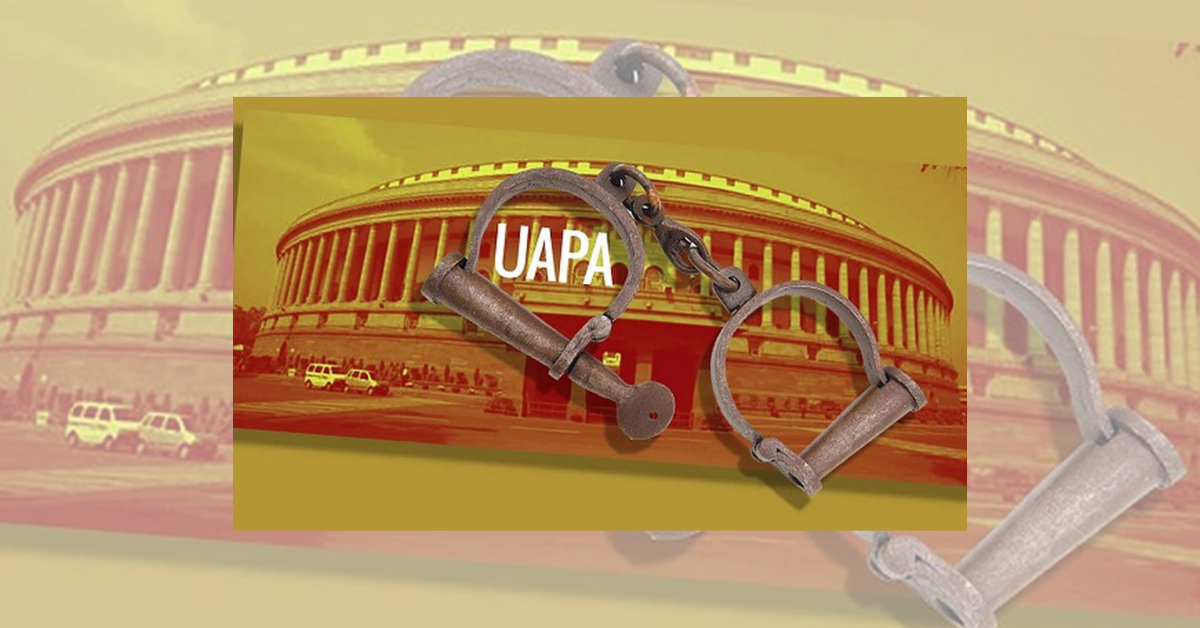The following is a brief introduction to the practice and procedure of litigation at the Bombay High Court.
CMIS Date:
When a case or “matter” is filed at the Bombay High Court, it is usually assigned a date when it will come up for hearing by the computer software used by the court, known as the “
Case Management Information System”. This date is often referred to as the “CMIS Date”. The list of cases published for any given day or week at the court is known as a causelist or “board”. If your matter is listed on board on a Monday and it does not “reach” or get called out on that day, it will automatically be re-assigned a CMIS Date, usually a week or more (sometimes, months) later. The mere fact that a matter has been assigned a CMIS Date does not necessarily guarantee that it will actually be “listed” before the court on that date (i.e., that it will actually show up on the board on that date). If the matter is not listed on the CMIS Date, then it will automatically be re-assigned another CMIS Date.
“Mentioning”:
Often, litigants might like their matters to be listed on board sooner than the next CMIS Date which may be months away. Ordinarily, a litigant must demonstrate to the court that there is some urgency in the matter which justifies giving precedence to their case over others. The process of skipping ahead of other cases in line and getting an earlier date is carried out by “mentioning” the case before a Bench.
“Mentioning” is a part of the unwritten custom, practice and procedure of the court. It has various iterations which depend on the personal
preferences of each judge or Bench. An advocate must prepare a document, usually no more than one page in length, called a “Precipe”, and take it before the judge to whom cases of that kind have been assigned by the Chief Justice.
The Precipe must make out, in brief, grounds why the matter should be listed ahead of others in line. “Mentioning” takes place most often at 11am, which is the official time for the commencement of the court. As soon as the judges of the court take their seat at that time, a string of lawyers will be found making short 10 to 30 second pitches to the court, to try and convince the court to assign an early date to their matters. In more rare circumstances, mentioning may take place at 2pm (seconds before the judges rise for the lunch break), at 3pm (seconds after the judges take their seat after the lunch break), or 5pm (seconds before the judges rise for the day). Some judges do not permit mentioning at all. This is because mentioning can sometimes take up to 15-30 minutes each day. [If a judge doesn’t allow mentioning in the morning, the practice will be to submit a Precipe to the court associate early in the morning. Thereafter, circulation or production (terms which will be explained below), as requested in the Precipe, might often automatically be granted.] Most judges will be against any mentioning which takes place after 11am, without good reason.
In some cases, mentioning will not require a Precipe. This is ordinarily so when the matter being mentioned is already listed on board on the date on which the matter is being mentioned. A matter which is listed on board on a certain date might be mentioned that very day for several reasons, e.g., it was “kept back” (a term which will be explained below) and the advocate appearing in the case has now arrived in the courtroom, or the matter did not “reach” or get called out during the day and one of the parties wants to mention the matter at 5pm to have it listed sooner than the next CMIS Date. However, some judges do not like matters listed on board to be mentioned before 5pm.
Circulation/Production:
Broadly speaking, you may mention a matter either for “circulation” or “production”. If you want your matter to be listed on board on any day after the date on which the matter is being mentioned (usually a few days after the date of the mentioning), the matter is said to be mentioned for “circulation”, i.e., the papers of the matter will be “circulated” to the court on that date. On the other hand, if you want your case to be listed on board on the same date as the date on which the matter is being mentioned, the matter is said to be mentioned for “production”, i.e., the papers of the matter will be “produced” before the court on that very day. Some urgency typically has to be shown whether the matter is being mentioned for circulation or production.
The circumstances in which a judge will permit you to mention a matter for “production” will vary from court to court. Before some judges, matters are only permitted to be produced if there is some earth-shattering, urgent ad-interim or interim relief which is being sought by a party which can’t wait even a day, e.g. if a building is being demolished that very evening, and the residents of the building want a stay order. Other judges (typically, those who do not permit mentioning in the morning) may permit production for relatively routine matters, e.g., for condoning the delay in filing an appeal.
Daily, Weekly, Supplementary, and Production Boards:
There are various lists or boards which are published by the Bombay High Court, and your case might show up on any one of these lists depending on your situation. The standard causelist is the “daily board”. The daily board comes out one week in advance, usually on the Friday or Saturday prior to theweek in which the cases listed in it will be heard. The daily board really consists of five lists of cases, one list for each day of the week. What that means is that if your case is listed for hearing on the daily board on a Monday at item number 50 before Justice “A”, but Justice “A” was only able to hear 35 cases on his daily board that Monday, the case will not automatically appear on the board on the next day, i.e. Tuesday, but will be assigned a new CMIS date, usually a week or more (sometimes, months) later. The daily board begins with the number “1”.
The “weekly board” is a list of cases for an entire week. In other words, it is one single list for the entire week, and not five separate lists for each day of the week like the daily board. Thus, if you are listed at item 10 on the weekly board, and a judge is only able to reach item 7 of the weekly board on Monday, your matter could still reach on any other day of that week. The weekly board usually consists of final hearing cases, and will be called out after the supplementary board and daily board are exhausted. The sheer volume of the supplementary and daily boards makes the hearing of the weekly board a rare occurrence. The weekly board consists of numbers in the “200” series.
The “supplementary board” often contains cases that were mentioned for circulation during the week. It typically consists of urgent matters that are being heard out of turn. The supplementary board is usually (though not always) called out first, followed by the daily board, and weekly board. There is no supplementary board on Mondays. This is because the daily board is prepared on Fridays or Saturdays, and cases which were mentioned for circulation on Friday can appear on the daily board for Monday. The supplementary board comes out the night (usually at around 9pm on the High Court website) before the date on which cases listed in it will be heard. Since you don’t have a week’s advance notice that the case is going to be listed on board, preparing for cases listed on the supplementary board might be taxing. In very rare cases, some judges of the High Court will only have a supplementary board, perhaps because it can be organized better from day to day. The supplementary board consists of numbers in the “900” series.
The production board consists of cases which were mentioned for production in the morning, or for which a production Precipe was submitted in the morning. It will ordinarily come out at around 3pm or thereafter. The production board might be taken up at or around either 3pm or 4.30pm, depending on the preference of the Bench. (Judges who take up the production board after 4.30pm risk having to sit past 5pm if the number of cases on their production board is very large). In some courts, the production board might also come out and be
called out at or around 11am.
Captions, Remarks, Fixed and Kept–Back Matters:
Litigators must quickly learn to analyze the board when it comes out, to assess the chances that their case(s) will actually reach or be called out before the Bench. Cases are listed on the board under “captions” or headings. These captions let you know the purpose for which the matter has been listed. Cases listed under some captions will often take no more than a few minutes to conclude, e.g., cases listed “for directions”, “for withdrawal”, “for settlement/filing consent terms”, “for speaking to the minutes”, or “for pronouncement of judgment”. On the other hand, cases listed under other captions are likely to “go on” for longer, assuming that the lawyers on both sides are prepared and ready to go on, e.g. “for hearing”, “for admission/denial of documents”, “for admission”, “for recording of evidence”, “for ad-interim relief”, etc.
If a matter reaches and is called out between 11am and 2pm, a request may be made to the court to have the matter “kept back” for a short while, usually because the advocate appearing in the case is in another courtroom at that time. In Delhi, a “kept back” matter is called a “passover”. Before some judges, all “kept back” matters are called out at 3pm, unless liberty is granted to mention the matter before. Before other judges, “kept back” matters have to be mentioned when the advocate arrives in court. Matters can rarely be “kept back” after 3pm.
The board will also sometimes contain matters “fixed” at a certain time, often at 3pm but sometimes earlier or later. When the clock strikes the time at which the matter has been fixed, the court might finish the ongoing matter (sometimes, it might choose to even finish other matters under the same caption), and then take up the fixed matter. Thus, for example, let’s say that a matter is fixed at 3pm. Let’s say that when the court rose for lunch at 2pm, it was in the midst of hearing another matter. When the court resumes at 3pm, it will first take up the hearing of the ongoing matter (called the “matter in hand”). It will thereafter hear all kept-back matters. Then, the “fixed matter” will be taken up for hearing. “Fixed matters” often (though not always) have senior advocates appearing on one or both sides, and are typically likely to take some time if they take off. Finally, the board will also sometimes have remarks against a case which has been listed. These remarks will provide procedural information about the case, to which attention must be paid.
Office Objections, Stamp and Registration Numbers:
When a case is filed at the Bombay High Court, the administrative department might take up some “objections”. These objections relate to procedural lapses in the paperwork. For example, the department might object that some of the documents annexed to the pleadings are not very legible, and require typed copies to be annexed alongside, or that some documents are in Marathi and require English translations. These are called “office objections”. Until the office objections are removed, the case will only be assigned a “lodging number” (also called a “stamp” number), which will be signified with the capital letter “L” written in brackets alongside the number of the case. Once the office objections are removed, the case will be assigned a “registration” number. This sometimes assumes importance because some judges do not permit matters which are under lodging numbers, where the office objections have not been removed, to be mentioned for urgent relief.
Assignments:
Every few months or so, the Chief Justice of the High Court publishes an “assignment”, which sets out the type of cases which will be heard by each Bench of the court. Cases are typically distributed among judges according to subject matter (e.g., testamentary, intellectual property, arbitration, company matters, etc.) and chronology (e.g., suits up to 2010, suits of 2016, etc). If you’re mentioning a matter, it’s important to ensure that you’re mentioning the matter before the judge who has the assignment of the case you’re dealing with.







Having just started work at the Supreme Court of NSW, this is fascinating stuff to know – very interesting to see remarkable substantive continuity between the two even though the official terms used (somewhat more archaic and formal English at the Bombay High Court) may differ. Thanks for posting this!
It is very good brief for frashers….thank you so much….thanks a lot…..
One of the best ever article i have read. its the best for beginners like me. Thanks a lot. i have got the answer i was searching.
Thanks! It would be very interesting to know what the similarities between the two systems are…
Simply Brilliant, Abhinav. I have seen and seen. Read and Read. Barely few can match your tenacity in writing. I wish i had your humility.
Many thanks
Very brief and yet detail observations, hard to find anywhere. Thanks for a quick recap for the beginners..!
Knowledge is useless unless it is shared. You have taken the effort to share your knowledge and it has enlightened me. I really appreciate it.
What will be next after part heard in bombay high court.
Concise but gives a complete glimpse. Very useful particularly for new entrants to the bar.
Bang on !! One-off !! Thanks.
Very helpful. Many thanks to Abhinav ji.
Thank you very much !!! Really useful for beginners like me… Will like to read more on such useful topics regarding practice of courts in India.
Very useful and informative for a new lawyer practicing in Bombay High court.
Thanks.. Abhinav sir… Your guidance is very useful for beginners like me.. I am going to join bombay high court.. Soon… Keep guiding us in such manner
What does it mean when the case status of a pending Writ Petition shows ; ‘ Admitted ( Not ready )” but the case is assigned for final hearing to a Bench with names of the assigned judges ?
Thanks a lot for the useful information cited here.
Really very useful.
Very interesting.
Thanks for the information. It is good to know that people are keen on sharing their knowledge. Hats off to the initiative taken by you. God bless.
Very useful information normally not found anywhere.
Thanks and best wishes.
USEFUL AND HELPFUL INFORMATION TO EDUCATED LITIGANTS WHO
FOUNDED HELPLESS DUE TO LACK OF SUCH INFORMATION .
GREAT DONE ,THANKS
USEFUL AND HELPFUL INFORMATION TO EDUCATED LITIGANTS WHO
FOUNDED HELPLESS DUE TO LACK OF SUCH INFORMATION .
GREAT DONE ,THANKS
When court sitting is skipped for PC then who will take up cases?
Supplimentry case in Bombay high court not coming for hearing for last 4months, as urgent matter of redevelopment of building where we approach.
Thank you so much for the information.
Thanks for sharing this information, really helpful for the beginners.
Sir, Thanks a lot it help me a lot while filling a new matter in Hon’ble High Court….
Sir please keep it up
Finally, The mysteries of listings lucidly revealed!!
Many thanks!
thank u very much sir
Excellent and precise explanation. Congratulations, u have literally obelised me with perfect knowledge and procedural breakthrough. Thanks.
This was absolutely brilliant and such worthy of a read.
Thank you.
Very Very Thank you Mr. Abhinav Chandrachud. I am litigant. filed a case in Bombay High Court in 2015. Unaware of these terms properly since 2 years. Today I understood. When I asked the meaning of these terms to my Lawyer He replied “I m not here to teach you. Otherwise I have to open school to teach meaning of these words to clients.:” Thanks Again
A very lucid and proper introduction to the listing process of Mumbai High Court. A must read for anyone new to the Bombay High Court. Good work. Kudos.
Dear Sir,
Really useful information to beginners at the Bar.
Thank you.
Informative, concise & lucid!
You have done such a great job penning this down… You deserve blessings.
God bless you chandrachud and all others of your team for helping your fellow citizens, keep up with the noble work.
Truly insightful article in a simple and lucid language. Looking forward to more such informative and enlightening article touching upon procedural part of the court.
what is the meaning of ‘End of Board’ remark in the delhi high court Cause List?
What is the meaning of “at the end of the Board”. . The Judge has mentioned in the adjournment order of Delhi High court
Insightful..
helpful resources for litigants.
It is a great piece of information. Thank you for sharing valuable insights.
Excellent and very useful article for freshers like me at Hon’ble Bombay HC. Thanks a lot.
Respected Sir, Would you please shade some light on how the restoration application proceedings work at High Court?
How to register case under proper head and get know about procedure fallow under that case
which stage high on board ?
omrxqp
csubei
euu02g
o21st7
qo59jg